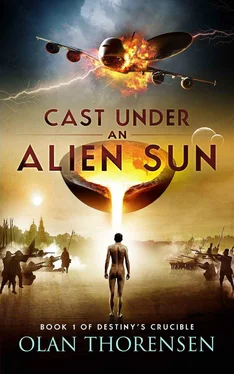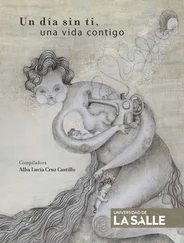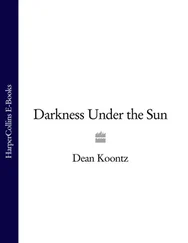Camrin visibly relaxed. Yozef whispered, “This Camrin man doesn’t appear as worried about the decision as I thought he would be. Am I missing something?”
Cadwulf whispered back, “He’s not from this area originally, so he has no other family ties here. He’ll move elsewhere with some coin in his pocket and experience at successful farming, so he shouldn’t have any problem finding a farm widow willing to marry him.”
“I don’t understand. Why would any woman want to marry him after this?”
“I’ll explain later.”
Finished with the basic verdict, the adjudicator addressed both the ex-husband and the ex-wife, one after the other.
“Hulda Camrin, by your own admission you lied to two different courts in the past. While we appreciate the conditions and fears that led to you lying, no court can permit deliberate lies. That you admitted to those lies is mitigation but does not excuse lying. You are therefore sentenced to three lashes.”
The wife turned white and started crying. She was led away by several women.
“Kind of harsh, wasn’t that?” said Yozef, a little louder than he intended—loud enough that several people turned to him, and it brought a sharp gaze from the abbot.
“Shh,” whispered Cadwulf. “The judges had no choice. To lie to the judges is considered a serious offense. In this case, three lashes are considered a mild punishment, and the person giving the lashes will make them more symbolic than painful.”
“Yuslir Camrin,” intoned Carys, “we cannot be sure whether you are too sadistic or too stupid to understand your own actions. In either case, it is determined that a strong lesson be given in hopes of changing your future behavior. You are therefore sentenced to be taken to the village square and ten lashes to be administered before sundown this day.”
Camrin protested loudly, to no avail. As Magistrate Vegga led him away, the adjudicator had a last word. “Be also aware, Yuslir Camrin, that you are required to report to the district registrar where you go in Keelan Province. Details of this judgment will be sent to that district, and any further offenses committed by you will be weighed, along with this verdict. Depending on severity, future offenses could involve banishment from the province. Next case.”
“He may well move to a different province,” murmured Cadwulf.
“So, the record of this doesn’t go to the other provinces?”
“No. Many clans are very strong in maintaining independence and won’t pay attention to any such records coming from Keelan. Mittack and Gwillamer and maybe a few others might, but Moreland and the northern clans wouldn’t care what happened here.”
A number of lesser cases were called, heard, and disposed of in rapid order as the day wore on. There were no such things as continuances in Caedellium justice. The final case of the day was the most serious. It was a compound situation that on Earth would require two separate trials. Cadwulf whispered a running account of who was who, what he knew of them, where they lived, and some details on how the judges might view the case.
It started with a teenage girl, maybe seventeen Anyar years (fifteen on Earth, Yozef reminded himself), claiming she had been raped by a neighbor’s twenty-two-year-old son. There were no witnesses, and the girl did not make the accusation until she knew she was pregnant. The case got more complicated when one of her brothers accosted the accused, and, during a fight, the accused was stabbed to death by the brother. Of this part, there were multiple witnesses that the brother had instigated the fight and had pulled a knife, when he started getting the worst of it. The case then had to resolve multiple issues. Because the accused rapist was dead, that charge was resolved. However, by custom and law, a rapist and his family could be responsible for helping support the child.
“The person and his family are responsible for the actions of the person, such as regarding any money to compensate a victim or their family,” Cadwulf whispered to Yozef.
The second decision concerned the brother. There was no doubt he believed his sister and in anger had sought the accused. There also was no doubt he had started the fight and had drawn the knife and stabbed the other man. Two issues needed determination. One was whether the brother and his family were liable for blood-money—payment to the deceased’s family for loss of a family member. The second was how to evaluate the killing and pass judgment on the brother.
Again, Yozef noted a huge difference with the Caedellium justice system. Judgment was quick, compared to back on Earth. After hearing all of the evidence, the three judges huddled together on the platform for twenty minutes before the adjudicator announced their unanimous decision.
“As is there is no confirming evidence a rape occurred or that the child was fathered by the deceased, and since no accusation was made for some months, no penalties or obligations are directly assigned to the family of the accused rapist. As for the killing of the accused, Kellum Mellwyin is confirmed guilty of the death. No evidence of malice before the accusation of rape was presented, and given the nature of the accusation, we believe it reasonable that the death occurred during a time of reduced judgment. Nevertheless, a killing did occur. Whether or not the accused rapist actually committed the act, it is still the prerogative of Keelan justice to deal with the accusation, and there is no justification for either initiating the fight that led to a death or justification for pulling a knife simply because the initiator of the fight began to lose. It is therefore judged Kellum Mellwyin is ordered to pay the family of the deceased thirty thousand krun, with the method and timing of payment to be submitted to the local registrar within one month. Kellum Mellwyin is also placed on probation for the next ten years. The case is settled. Next case.”
“The 30,000 krun is judged to be what the dead man would have earned for his family in ten years,” said Cadwulf. “Mellwyin won’t have the krun himself, so his family will pay the judgment.”
“What if they can’t pay?”
“Then Magistrate Vegga and the registrar decide on what the family can afford. That could include family members working for the victim’s family for no pay for a length of time.”
“What does probation mean?” asked Yozef.
“If he commits another serious act of violence within those ten years, he might be banished from Caedellium. If it’s a premeditated act, or the act is serious enough, he could be sold to Frangel slavers and the coin given to victims or their families. Normally, those with such sentences are held in confinement in Preddi, awaiting the slavers who come about every five or six months and collect all those condemned to either banishment or slavery. Since the Narthani stopped all ships except their own from coming to Caedellium, such people are being held in Orosz City until a solution is found. Some have been there for several years.”
“So this is not normal … to keep them imprisoned here in Caedellium?”
Cadwulf frowned. “Why would we keep them imprisoned? They’d be a burden on the community. They are punished by fines, whippings, or probation or sent away from Caedellium, either as exiles or slaves, depending the severity of their crimes.”
“So there’s no death penalty on Caedellium?”
“Only for the most heinous crimes, where the person is judged so dangerous that even sentencing him to slavery or banishment off Caedellium would place others in future danger. It happens rarely, but I know of two such cases in Keelan Provence during my lifetime.”
“What about an appeal? Can the accused, if found liable or guilty, try to have the decision changed?”
Читать дальше












